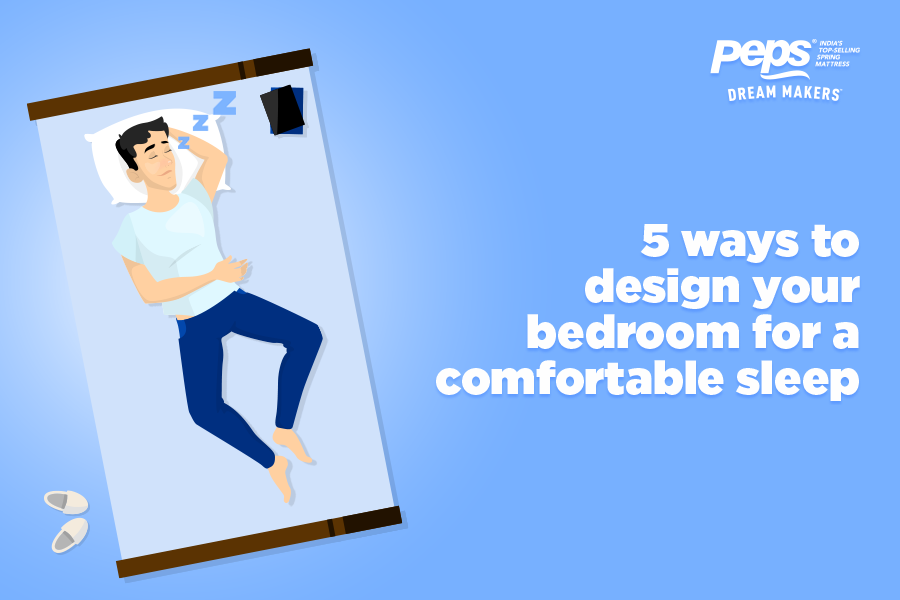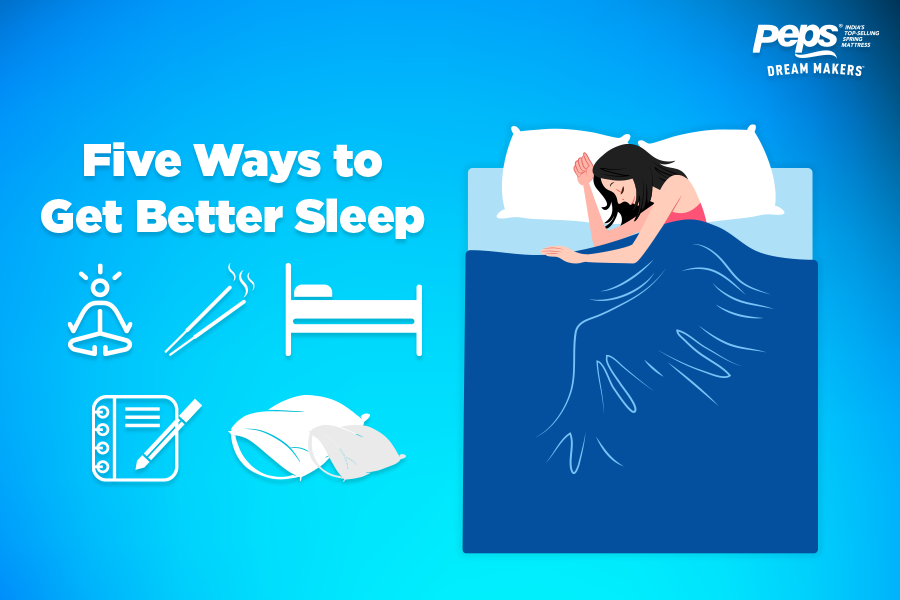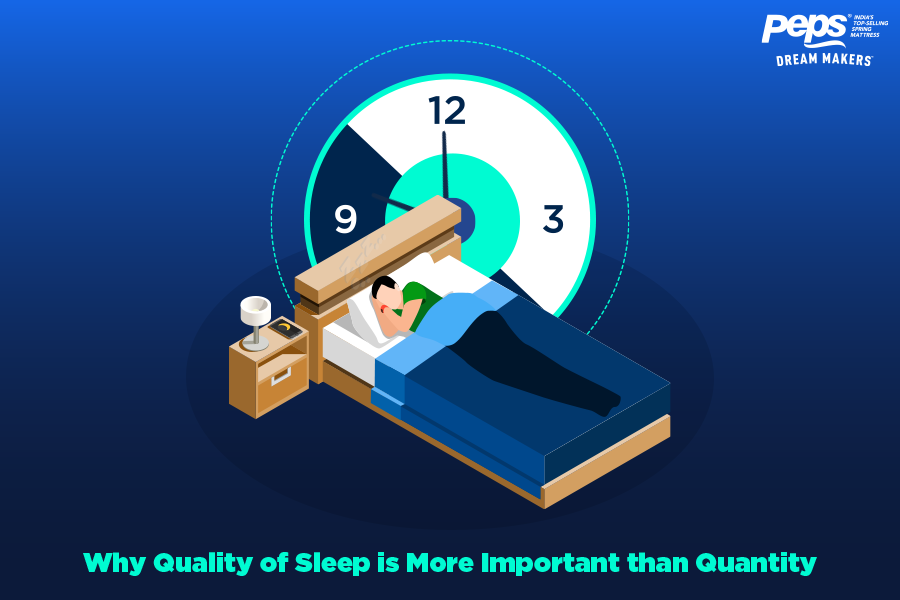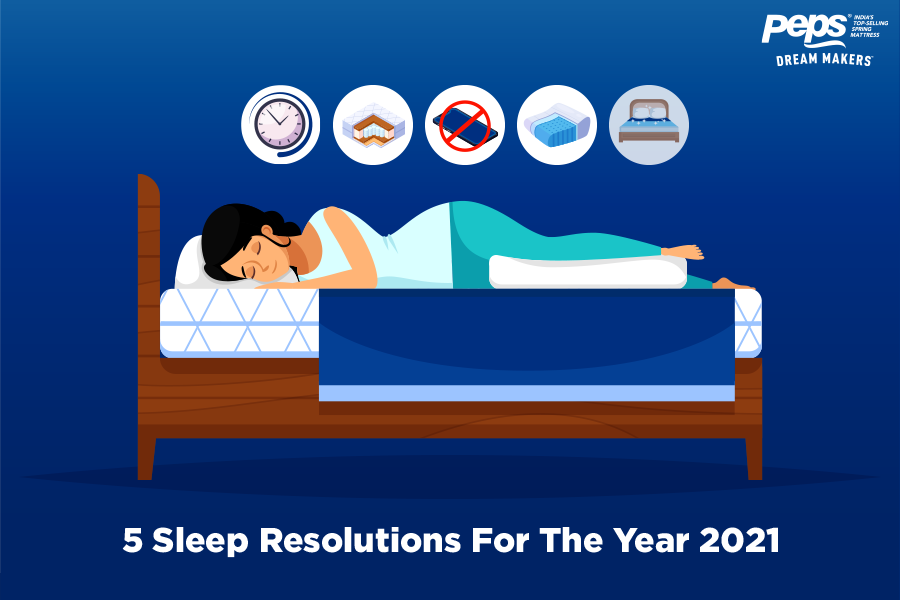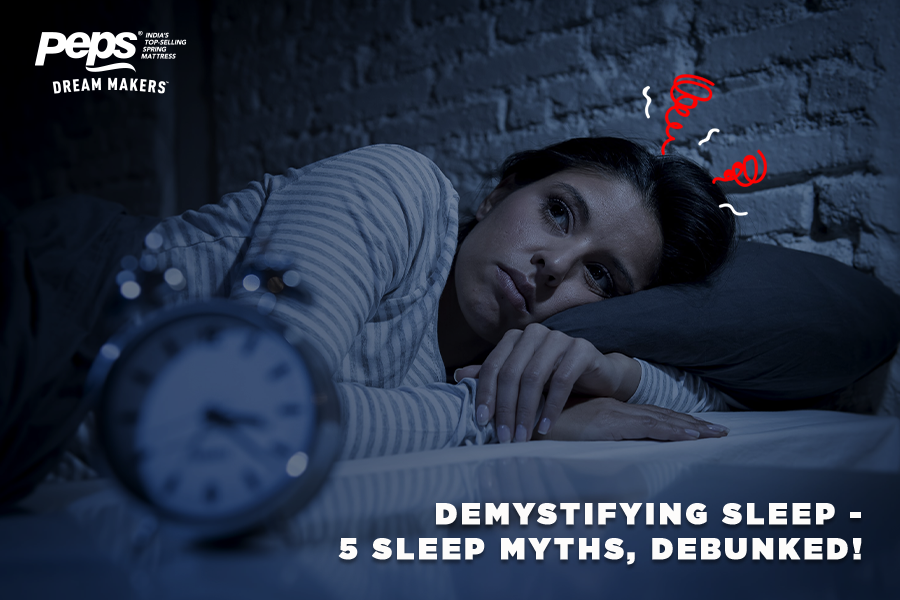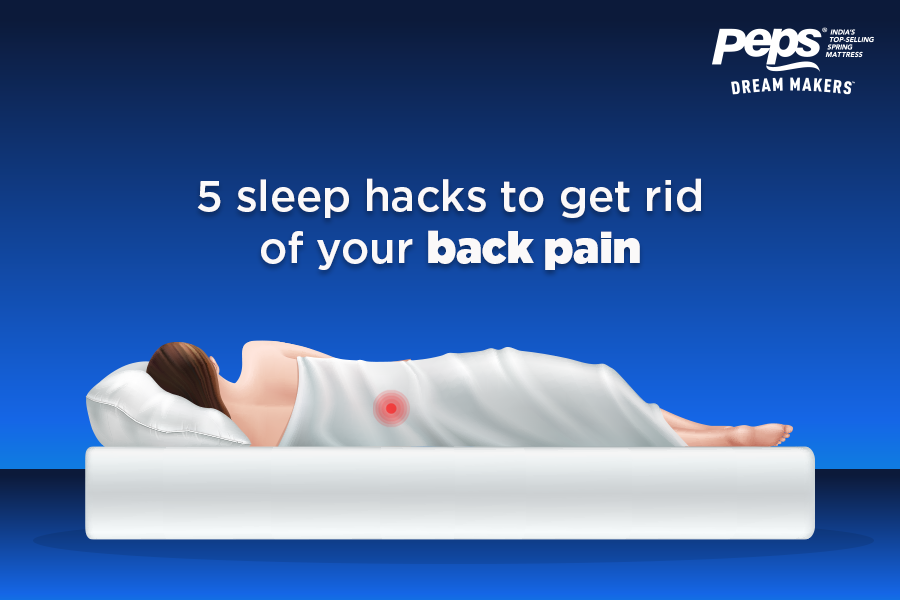
Do you often describe yourself as decidedly not a ‘morning person’? Most of our mornings tend to start with groans, snooze buttons and cranky moods. Often, this bad mood does not end with mornings, but extends into the rest of our day as well. Research indicates a close link between sleep and mood, with inadequate sleep leading to stress, irritability and increased risk of developing a mood disorder. Here are five ways in which a quality mattress can ensure a smile on your face for most of your day!
More Sleep = Less Anxiety and More Resilience
Throughout our day, a range of stressors can serve to increase our anxiety, thereby lowering our mood. Lack of restful and adequate sleep can leave individuals feeling impatient and easily irritable, which increases the anxiety induced by stressful events. From sharpening decision-making skills to improving the body’s relaxation mechanisms – sleep increases your ability to cope with stressful events in a multitude of ways. The right mattress ensures a night of restful sleep, thereby leaving you with the emotional resilience to tackle all the curveballs thrown at you.
No Pain, More Gain!
Waking up with a back ache or sore muscles can put you in a decidedly bad mood for the rest of your day. Aside from being physically debilitating, aches and pains also affect your mental health and make it difficult to stay positive. A bad mattress is considered to contribute to a range of pain-related conditions. Using a mattress that is right for your sleeping style and unique sleep problems can help alleviate pressure and reduce pain. Replacing your mattress with a supportive one, such as Peps Spine Guard, might be the one-stop solution for all your throbs, aches and pains.
Aid your Brain In Processing Emotional Information
A new mattress not only helps you wake up refreshed, but also helps your brain function more efficiently throughout the night. Sleep is responsible for various kinds of brain activity that have profound effects on mental and emotional health. It serves to enable the processing of all information encountered throughout the day, including emotional information. Therefore, inadequate sleep can result in inefficient processing of emotional information, which in turn acts as a risk factor for various mental health disorders, including suicidal behaviours. Using a good-quality mattress can help you sleep better, thereby ensuring that you have the positive mood and emotional reactivity to tackle a brand new day!
Hustle Harder Throughout The Day
Productivity is closely linked to improved mood, and we can all relate to the feeling of satisfaction upon seeing a completed to-do list. A new mattress can exponentially increase your energy levels by ensuring a night of rejuvenating sleep. Lack of restful sleep can leave you feeling tired and unmotivated, with your only end goal being to make it through the day and get back into bed. By choosing a mattress that’s right for you, you can ensure that your sleep gives you the productivity and motivation to chase your dreams!
Start Your Day On The Right Note
Cursing your alarm and craving ‘just 5 more minutes’ of sleep does not exactly make for the best start to your day. The first hour of your morning serves to set the tone and momentum for the rest of your day, and a bad morning can ruin your mood for the entire day. Waking up refreshed, eating a healthy breakfast and getting some morning exercise are all linked to feeling more positive throughout the day. On the other hand, waking up with a sore back, foggy head and a desperate need for coffee can act as the recipe for bad mood. By using a good-quality mattress, you can ensure that a good night’s sleep leaves you refreshed, energized and ready to start the day with purpose and intention.
Negative moods can be extremely draining, and the right mattress might be the pick-me-up that you desperately need. Inadequate sleep has been linked to a wide range of mental health deficits, with lowered moods being one of the most important ones. Use the right mattress, and ensure that you always wake up with the positivity to enjoy your day!

